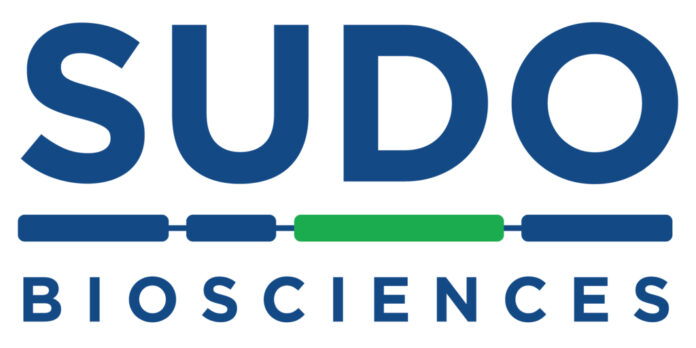CARMEL, Ind.– Sudo Biosciences (“Sudo”), a biopharmaceutical company committed to designing and developing best-in-class precision TYK2 (tyrosine kinase 2) inhibitors, announced today that the first participants have been dosed in a Phase 1 clinical trial evaluating SUDO-550, a novel brain-penetrant allosteric TYK2 inhibitor for the treatment of neuroinflammatory diseases.
The Phase 1 clinical trial is designed to evaluate the safety, tolerability, and pharmacokinetics of single and multiple-ascending doses of SUDO-550 in healthy volunteers, including confirmation that the compound effectively crosses the blood-brain barrier.
“Entering the clinic is a critical step in the development of SUDO-550 and establishing it as a best-in-class brain-penetrant TYK2 inhibitor. This is a therapy that could significantly advance the treatment of diseases such as multiple sclerosis, ALS and Alzheimer’s,” said Ian Mills, Chief Medical Officer, Sudo Biosciences. “This is the second allosteric TYK2 inhibitor we have advanced into the clinic this year, after SUDO-286 which is progressing in two Phase 1 trials as a topical treatment for psoriasis.”
The company is developing multiple highly potent and selective small molecule TYK2 pseudokinase inhibitors designed to provide targeted treatments across a broad range of autoimmune and neurologic conditions.
SUDO-550 is an orally administered, allosteric TYK2 inhibitor that demonstrates high selectivity and potency for TYK2, minimizing off-target effects. Non-clinical studies have demonstrated excellent blood-brain barrier penetration with the compound, enabling therapeutic potential for CNS diseases characterized by compartmentalized neuroinflammation. These results support its potential as a best-in-class treatment for multiple neuroinflammatory diseases.
SUDO-286 is a highly potent, selective and potential first and best-in-class topical TYK2 inhibitor for psoriasis and other immune-mediated dermatologic diseases. The program entered the clinic earlier this year and is currently being evaluated in two Phase 1 studies in healthy volunteers and patients.


